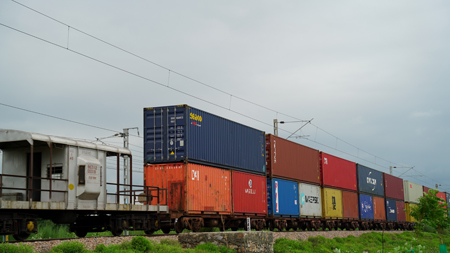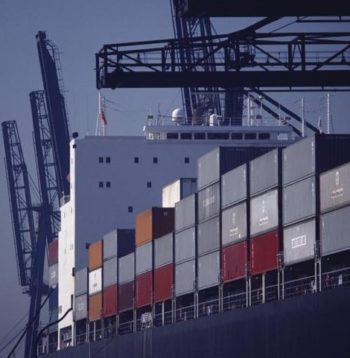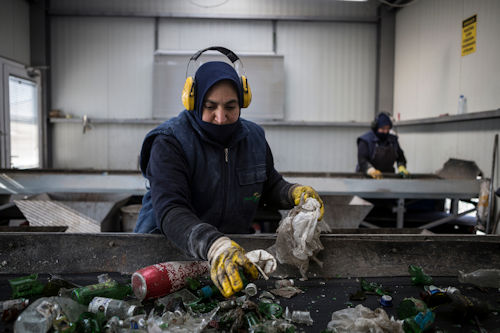The Department for Environment, Food & Rural Affairs (Defra) has moved to clear up confusion arising from the UK’s approach to plastic exports to non-OECD countries.
The clarification comes in the wake of criticism from the global waste trade watchdog Basel Action Network (BAN), which accused the government of implementing weaker controls than the European Union.
Under amendments to legislation on waste shipments, the EU banned the export of contaminated and highly mixed plastic waste (known as Y48) to non-OECD countries from 1 January 2021.
With the Brexit transition period having ended, any EU amendments now do not take effect in the UK. The UK has not introduced an outright ban on exports of Y48 to non-OECD countries.
Exports of Y48 to non-OECD countries from the UK are now subject to the procedure of prior written notification and consent. This means the waste can only be exported from the UK to non-OECD countries if the shipments have been approved by the regulator here and in the country of destination.
Defra said the government believes it does not need to consult on an intermediary ban on exports of Y48 plastic waste because it has already committed to banning all plastic waste exports to non-OECD countries.
Defra estimates that around 210,000 tonnes of plastic wastes are exported each year from England to non-OECD countries. These shipments are destined for Hong Kong (36%), Malaysia (23%), Indonesia (13%), India (7%), Taiwan (7%), China (5%) and Pakistan (4%), amongst others.
Plastic Waste Amendments FAQs (basel.int)
B3011
The EU also made clean, separated single stream plastics or clean mixtures of polyethylene terephthalate (PET), polypropylene (PP) and polyethylene (PE) (known as B3011 plastics) so-called ‘green list’ waste from 1 January. This meant B3011 plastics could be shipped without prior informed consent and under lighter touch controls.
UK legislation means procedures surrounding green list waste must be agreed with all non-OECD countries directly. Exports of B3011 plastics from the UK to non-OECD countries became notifiable by default on 1 January because these agreements were not in place before the transition period ended (see letsrecycle.com story).
Defra says it is currently writing to all non-OECD countries to ascertain what import procedures should be applied to exports of B3011 plastic waste from the UK. The results will be reflected in an amended version of UK export regulations.
Pledge
A Defra spokesperson said: “The UK government is a global leader in tackling plastic pollution and is committed to clamping down on illegal waste exports.
“We have pledged to ban the export of all plastic waste to non-OECD countries and to introduce tougher controls on waste exports, including mandatory electronic waste tracking which will make it harder for criminals to obtain and export waste illegally.”
Defra has commissioned research to help it understand existing UK plastic waste recycling capacity better. It says it will consult on policy options to deliver the government’s 2019 manifesto commitment to ban all exports of plastic waste to non-OECD countries.
On 18 January, recycling minister Rebecca Pow said the UK would ‘go further’ than the EU on export bans (see letsrecycle.com story).
Basel Action Network
BAN’s director Jim Puckett had criticised the UK government on 12 January for what he perceived to be “a far weaker stance” than the EU on plastic exports. He claimed the UK knew as early as May 2019 that that the EU planned to ban exports of Y48 waste.
“We had assumed the UK would at least follow the EU”
“The UK has had almost two years to transpose the EU plastic waste export ban into UK law,” Mr Puckett said. “We had assumed the UK would at least follow the EU, and so it is a shock to find out now that instead they chose to have a far weaker control procedure which can still permit exports of contaminated and difficult to recycle plastics to developing countries all over the world.”
Turkey
Meanwhile, exporters have been warned to ensure their shipments conform to requirements after Turkey put in place new rules about the import of waste on 1 January 2021.
The country has banned the import of certain types of plastic waste, including for example plastic from the mechanical sorting of waste.
Phil Conran, director of consultancy 360 Environmental, told letsrecycle.com: “Exporters of plastic waste to Turkey will have to ensure that their waste conforms with the new Turkish government requirements. For instance, EWC code 19 12 04 – plastic waste that is sorted from mixed waste at a mechanical sorting facility – is now prohibited.
“With the apparent ban on mixed plastic imports into Turkey as well as the requirement for Turkish recyclers to have new import licenses, the risk of repatriation of waste that does not conform has clearly increased significantly from last year.
“Turkey accounted for nearly a third of plastic packaging waste exports from the UK in 2020 and, with the requirement for plastic exports to non-OECD countries to be notified, this is likely to increase.”
The post Defra clarifies non-OECD plastics export rules appeared first on letsrecycle.com.
Source: letsrecycle.com Plastic





